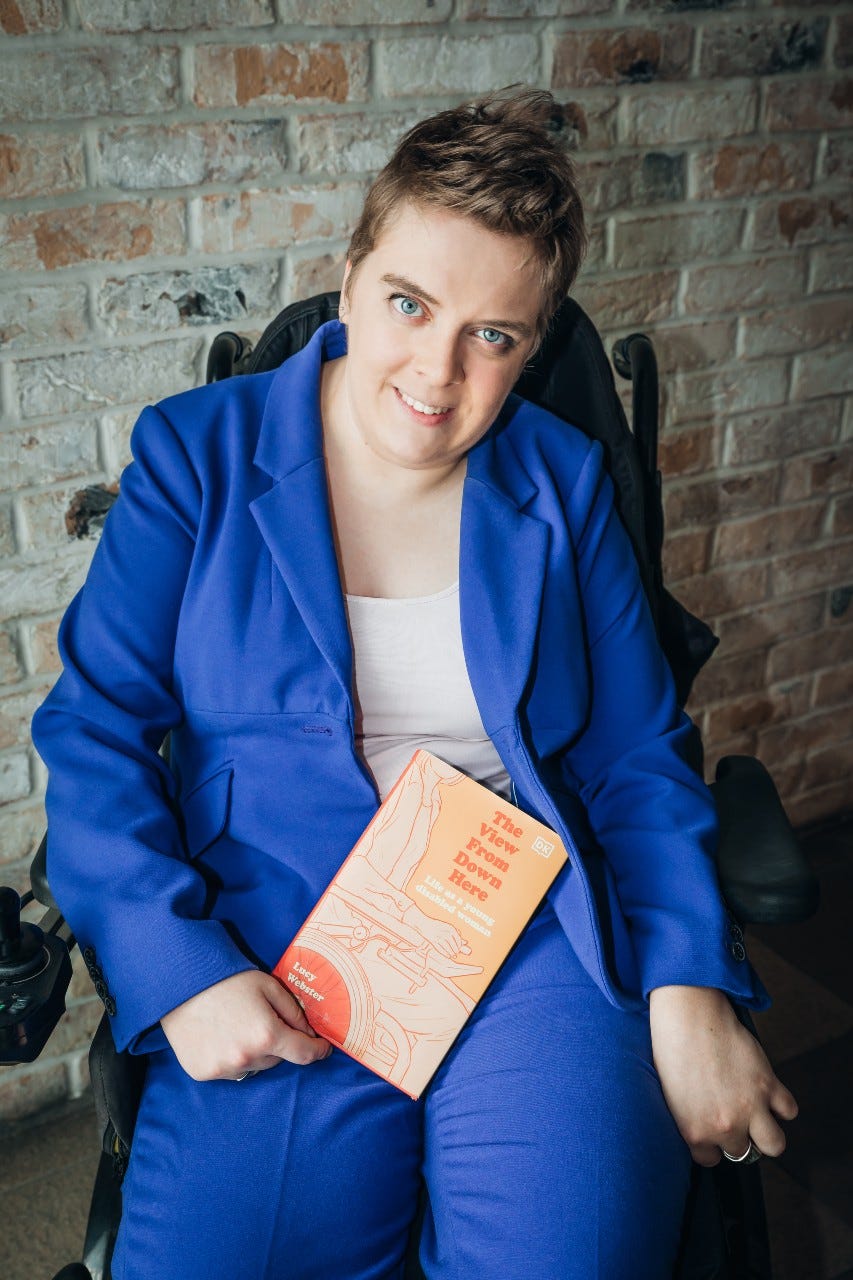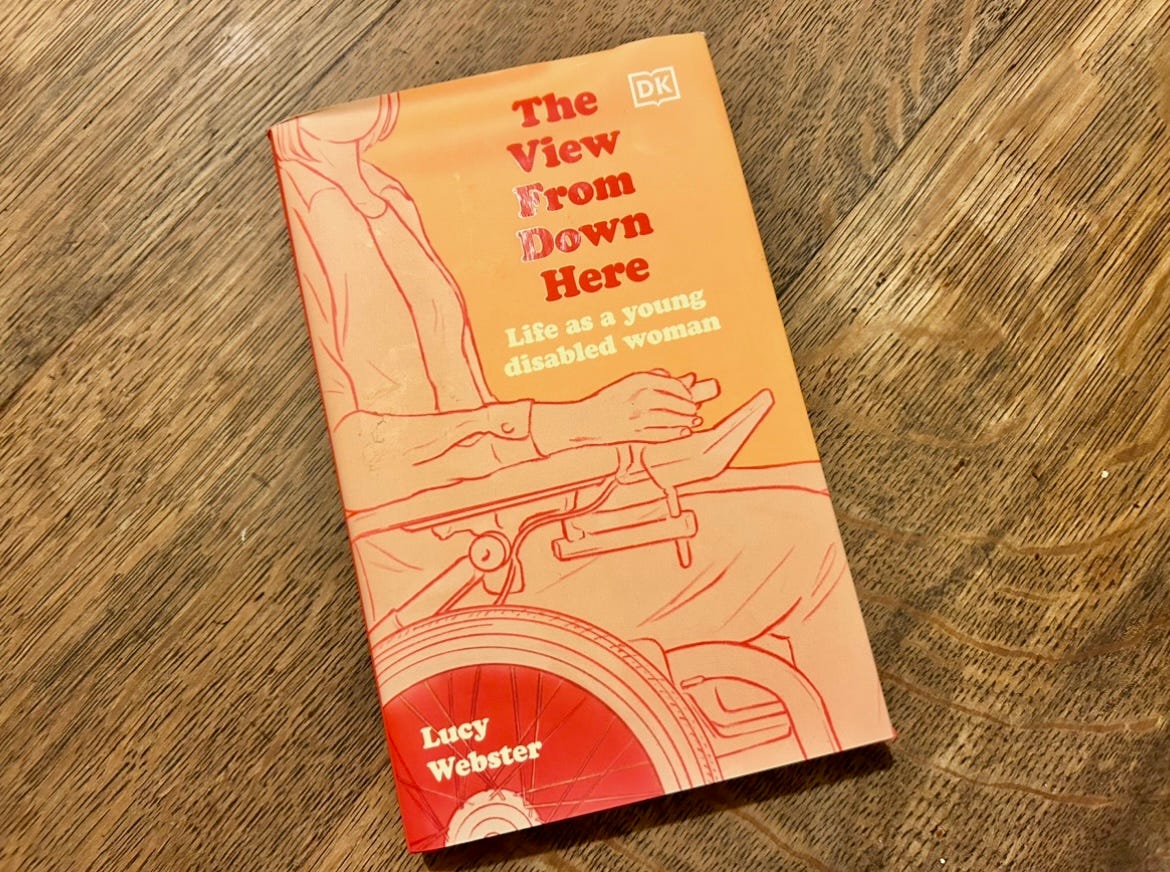One of the best things about having a newsletter, especially on Substack, is the community that you can build around your writing. I feel so honoured that The Single Supplement community is just so great. Your supportive words and insightful comments through email, the Substack app and over on Instagram following my comeback newsletter last week meant so much to me. I haven’t managed to reply to everyone yet but please know I have read every message and am really grateful.
I’ve written before about the importance of community and the power of knowing you’re not alone (this link takes you to a newsletter I wrote at the start of the pandemic so read with caution if you don’t like remembering that period). I remember being fine about being single until my last best friend partnered up and then suddenly I felt more single than ever… that is until I made a new brilliant single friend and then another one and another one. Then later on, I felt even more OK when I first starting writing about being single and receiving messages from people who related. There’s just so much power in having someone turn to you (either in real life or digitally) and saying ‘it’s like that for me too’.
Here’s a little edited piece of one of the newsletters above:
I’ve been wondering why exactly it is so comforting to know you are not the only one to feel a certain way. Even when you’re physically completely alone, it can give you a sense of camaraderie. I know for me, when I read other people in similar situations, my heart sometimes bursts at the thought because so often our brains allow us to believe there is something wrong with us for thinking or feeling a certain way.
I did a little research and found that one of the reasons this is so powerful is because it validates our experience. When our experiences are normalised, it offers affirmation and actually contributes to greater emotional freedom because when we feel recognised and accepted by another, we can more easily accept ourselves. I love the idea that by sharing our experiences of being single and/or living alone, it will help us to more easily accept our own feelings about our situations.
Anyway, this brings me to today’s guest writer Lucy Webster who has written this lovely little essay for us about the power of the disabled community and how being part of it has freed her from the status quo.
I hope you enjoy it and it gives you some food for thought. Do buy Lucy’s book and/or sign up to her newsletter if her writing resonates with you.
Have a good week,
Nicola
Follow me on Instagram: @Nicola_Slawson
How disability freed me to live unconventionally

By Lucy Webster
I spent ten years being sad about being single. Ten whole years, from the age of just 16, worrying because my friends were dating and moving in and, later, getting married, and I hadn’t had so much as a first kiss.
I’ve written a lot - in my book, The View From Down Here, which came out last year, and elsewhere online - about how awful the ableism I faced as a wheelchair user looking for love was a source of near-constant misery. I’ve written a lot, too, about how a particularly egregious instance of ableism, when I was turned away from a matchmaking service on account of my wheelchair, broke my heart but at least finally freed me from the hellish dating merry go round. I decided I wasn’t going to subject myself to this sort of ableist clobbering anymore.
Renouncing dating bought an instant relief, and yet where I saw freedom, my nondisabled - and partnered - friends saw giving up. Luckily, the disability community was on hand to provide support and understanding, and to give me a sense of belonging as I built a life without romantic love.
It wasn’t just that disabled people knew what the ableism in the dating world was like or that they understood the need to protect yourself from it. It was also that disabled people know that there is not just one way to live a good, happy life; that there is not one way to fit in. When you are systematically excluded, both physically and socially, you have to question society’s norms - and often that questioning exposes how flawed those norms are. Disabled people have been rewriting the rules for centuries, whether by rejecting medicalisation or refusing to be ignored, why not turn that power to dating and relationships?
The more I thought about it, the clearer it became that I had been so desperate for a boyfriend because I had been told to be. Of course, lots of people, disabled or not, come to this realisation, but I think being part of a norm-busting community helped me not only know it but feel it too. I could finally see that a lot of my dating-related stress came down to my misguided belief that having a partner would allow me to fit into a nondisabled world; a world that, the older I got and the more confident I became, didn’t really appeal to me anyway.
Of course, this is not to say that disabled people don’t have relationships (we do), or even that I won’t find someone one day. It is just to say that the possibility of a relationship stopped being worth the pain of trying to find one. It is just to say that the disability community, and everything I have personally experienced as a disabled woman, has taught me that it’s ok when things don’t go to plan; that it is often in accepting life’s messiness that we free ourselves - from expectations, and to enjoy where we are right now. And it is just to say that, in a world tied to strict definitions, there are other ways to love and other ways to be happy.
Learning from my community and freeing myself from the pressure to find a man has freed me from other relationship-adjacent assumptions, too. I have recently come out as queer (gaining, as it happens, another entire community which isn’t too bothered about norms). I am considering becoming a single mother by choice. For the first time since I was a teenager, I feel in control of my own happiness - something I could not have imagined when I was being pelted by ableist harassment on dating apps or when that dating agency came close to destroying my sense of self. Not only have I accepted that conventionality isn’t really an option, but I’ve realised that, even if it was, it wouldn’t be right for me.
I wonder if there is a wider lesson here: that being embedded in a community makes it easier to live solo or to live differently. I never really feel alone. Of course, marginalised communities have a particular texture that makes them both welcoming spaces for those of us who belong to them and sites for rewriting society’s rules. But maybe other communities can do the same. I’ve learned so much from the disability community, maybe eventually others will find spaces that free them from conventionality, too.
Lucy Webster is a freelance journalist and writer, known for her coverage of disability rights and living with disability. Lucy has been writing about these topics, as well as British politics, feminism and diversity, for almost a decade and is a lifelong wheelchair user. Lucy also has a weekly email newsletter, The View From Down Here, which addresses these issues and has a highly engaged and growing audience. Her book The View From Down Here: Life as a young disabled woman is available now in hardback, ebook and audiobook. You can follow Lucy on Instagram here.
You can buy Lucy’s book on Bookshop.org*, Amazon, Waterstones or wherever you usually buy books.
Book giveaway
I have a copy of The View From Down Here that Lucy’s publishers kindly sent me so I could do a book giveaway for readers of The Single Supplement. To enter, share this post on the Substack app and comment below explaining why you want to win!
I’ll pick a winner (at random, using an online generator) on Friday 1st November. Good luck!
Support The Single Supplement
If you particularly liked this edition, you can buy me a coffee, here’s the link to my Ko-Fi page or consider becoming a paid subscriber when I relaunch my paid offering soon.
Not everyone can support financially, of course, but sharing on social media really helps too – or why not send this email to a friend who might like it? Thanks in advance for your support!
*Disclosure: I am an affiliate for Bookshop.org and have included some links in this newsletter to my store. If you buy books linked to my site, I may earn a commission from Bookshop.org, whose fees support independent bookshops.
About me
Nicola Slawson is passionate about telling human stories – either other people's or her own – and is a freelance journalist, writer and public speaker. She is based in Shropshire in the UK. The Single Supplement is an award-winning newsletter on Substack, especially for single people. Follow Nicola on Instagram and Twitter/X.
Did someone forward The Single Supplement to you? Sign up here.







Dear Lucy, Would you please give me contact information for your editors at FT and The Guardian. I have a piece i'd like to turn around VERY QUICKLY tying disability (especially neurotrauma) and awards, as in the very upcoming Oscars.
Wonderful, thank you 😊!